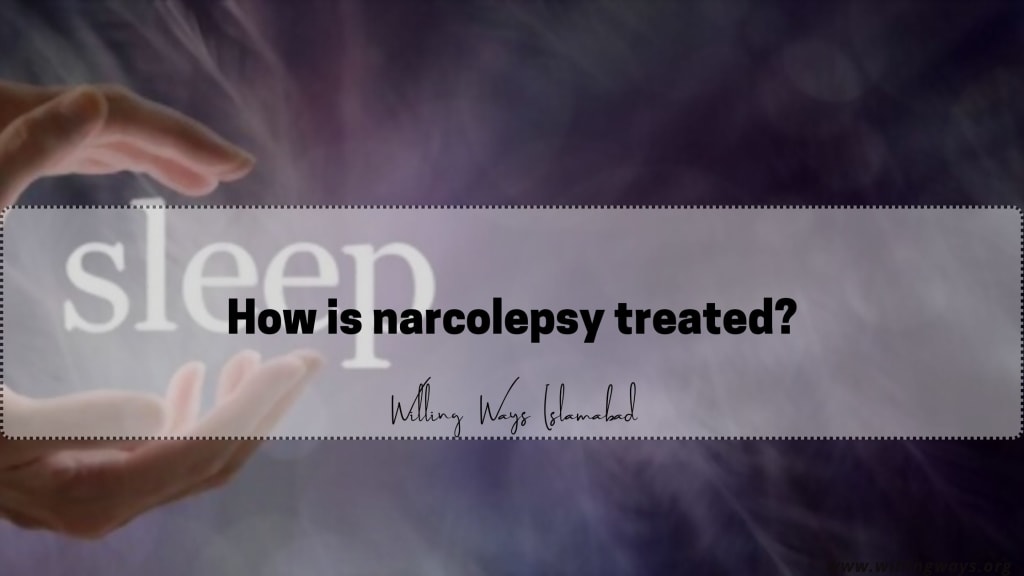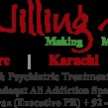How is narcolepsy treated?
There are a range of side effects associated with this class of drugs, some of which can be extremely serious, and care should be exercised if using this form of medication.

At present, there is no cure for narcolepsy at the best addiction treatment center in Karachi, which is a chronic and life-long condition. It is possible, however, to treat the symptoms with a combination of medication and behavioural therapy. People want to know the prescription drug trazodone used for Insomnia. The objective of any narcolepsy treatment plan is to keep you as alert as possible during the day and to minimize narcolepsy-associated cataplexy, hallucinations, and sleep paralysis.
- Medication. Two forms of medicine are usually used in narcolepsy treatment - one to reduce daytime sleepiness and the other to counter the effects of cataplexy, hallucinations and sleep paralysis.
- Stimulants. Stimulants are commonly prescribed to counter daytime sleepiness. The range of possible drugs is far too long to list here, but perhaps the two most widely specified are Ritalin (Methylphenidate) and Provigil (Modafinil).
- Ritalin. Ritalin is one of several central nervous system stimulants traditionally used in cases of narcolepsy. Still, unfortunately, it is familiar with other drugs in its class; Ritalin also increases activity in other parts of the nervous system, often giving rise to undesirable side effects. These include headaches, irritability, nervousness, gastrointestinal problems, and disturbed nighttime sleep.
In addition, drugs of this nature can lose their effectiveness if used over extended periods.
- Provigil. Provigil is a relatively new drug rapidly replacing Ritalin, and other central nervous system stimulants, as the drug of choice for treating daytime sleepiness in narcolepsy.
- Unlike other drugs, Provigil does not interfere with the hormones associated with sleep and does not result in disturbed nighttime sleep. It also causes less nervousness and anxiety than other alternative drugs and has fewer side effects. The main side effects are headache and nausea, but these tend to be short-lived.
- Anticataplectic medication. This is the general term for narcolepsy medication prescribed to counter the effects of cataplexy and reduce the symptoms of hypnagogic hallucinations and sleep paralysis.
There are five main categories of anticataplectic medication commonly used in narcolepsy treatment today.
- Tricyclic Antidepressants. These slow down the central nervous system and include such drugs as Tofranil (Imipramine) and Anafranil (Clomipramine). There are a range of side effects associated with this class of drugs, some of which can be extremely serious, and care should be exercised if using this form of medication.
- Selective Serotonin Reuptake Inhibitors (SSRIs). These are again designed to slow down the central nervous system and include such drugs as Prozac (Fluoxetine). SSRIs display fewer side effects than tricyclic antidepressants.
- Monoamine Oxidase Inhibitors (MAOIs). These drugs, which include Eldepryl (Selegiline), block monoamine oxidase B, an enzyme that degrades dopamine and is believed to play a role in narcolepsy. Some severe side effects can be associated with these drugs, mainly if used with other antidepressant medications. Further complications can arise from the interaction with certain foods.
- Gamma hydroxybutyrate (GHB). This particular drug, commonly referred to as Xyrem (Sodium oxybate), has been used in Europe for some time but has only recently gained FDA approval in the United States (July 2002). Side effects, which tend to be mild, include nausea, headache, dizziness, urine leakage, and sleepwalking.
- New Antidepressants. Two relatively new antidepressants are also being prescribed for cases of narcolepsy. The first, Edronax (Reboxetine), is a selective noradrenaline reuptake inhibitor (NARI), a unique form of antidepressant showing encouraging results in early use. The second, Effexor (Venlafaxine), is a selective serotonin and norepinephrine reuptake inhibitor (SSNRI) that has again shown promising results in early use.
- Behavioural Therapy. As with any sleeping disorder, giving your body the best possible opportunity to enjoy a good night's sleep is essential. By looking closely at your lifestyle and making changes to your habits and daily routine where necessary, you can make a substantial difference to the quality of sleep you enjoy.
In the case of narcolepsy sleep disorder, it is essential to see that you get a whole night's sleep (seven to eight hours is an excellent target to aim at) and that you go to bed and get up simultaneously each day, following a sound routine.
Unlike behavioural therapy for many other sleep disorders, such as insomnia and sleep apnea, you should also schedule two or three short naps of about fifteen minutes into your daytime routine to help keep you as alert as possible during the day.
Narcolepsy sleep disorder can create problems in your personal and professional life; many of these will have to be faced head-on. Family, friends, and colleagues can all help, provided you let them, and you must be aware of and act within your limitations. Examine carefully just how narcolepsy affects your life and make changes to your lifestyle and routine as required.
If you're particularly irritable in the late afternoon, this is an excellent time to spend some time on your own rather than risk upsetting loved ones or colleagues.
Similarly, if you're exhausted around lunchtime, avoid driving the car in the middle of the day.
Narcolepsy affects each sufferer differently, and you will need to find a method of coping that suits you, your family and friends, and your work colleagues best.
By understanding just how narcolepsy affects your life and by taking a few simple steps to adapt your lifestyle, you'll find that you can improve your quality of life, in many cases, quite dramatically.
About the Creator
Willing Ways
Willing Ways is the Best addiction treatment center in Pakistan. We are the pioneer in drugs & alcohol treatment centers with outstanding services and a history of 43 years. We deliver quality writing that is beneficial for you.






Comments
There are no comments for this story
Be the first to respond and start the conversation.